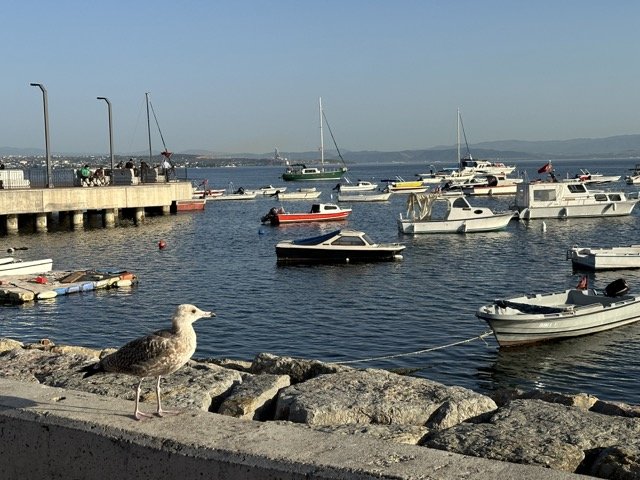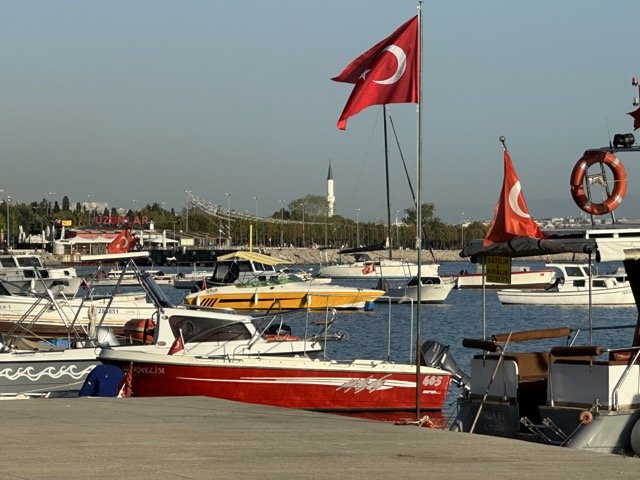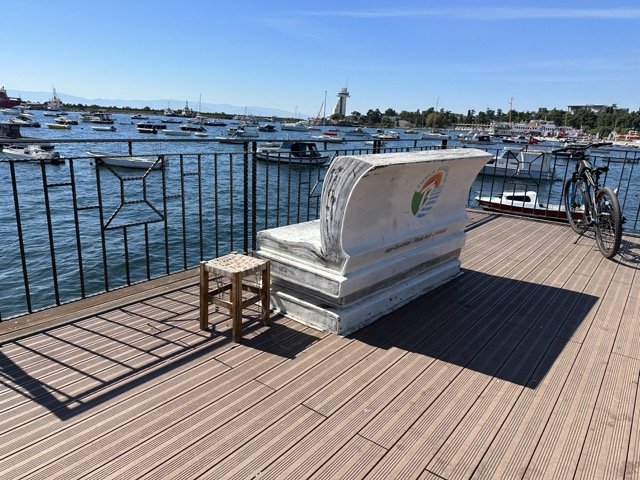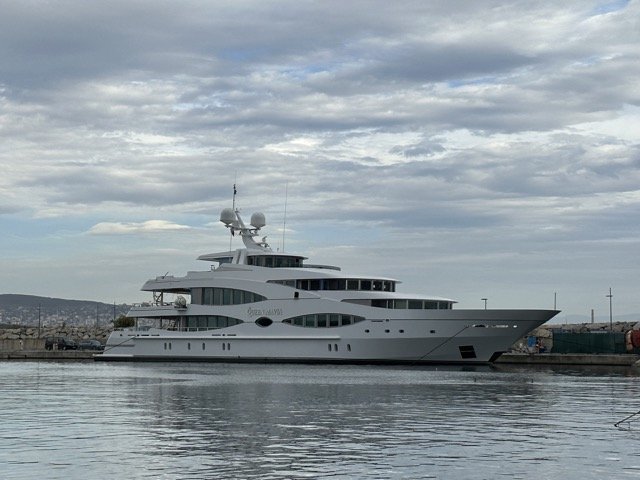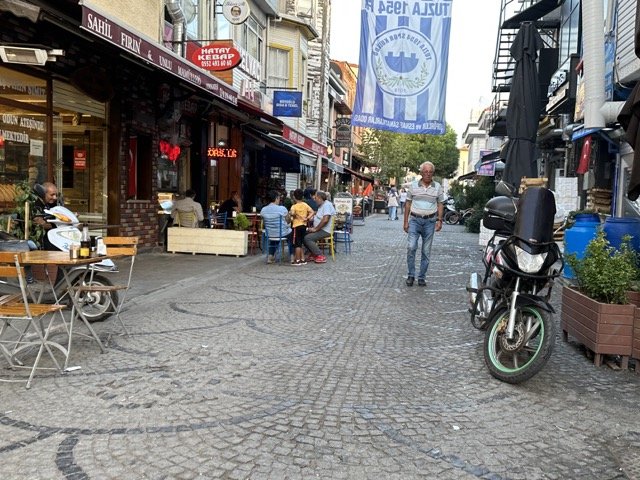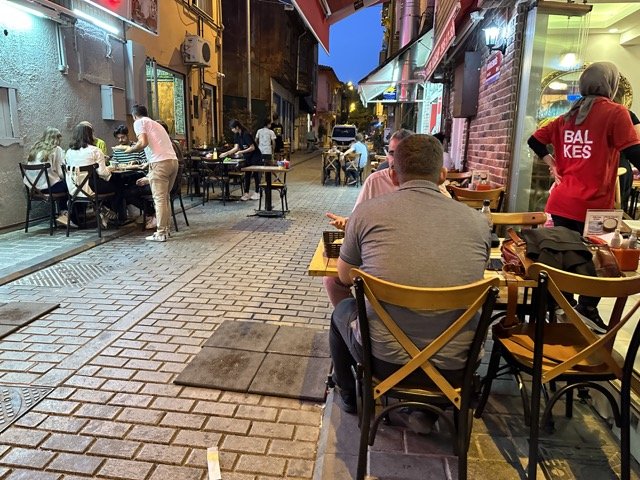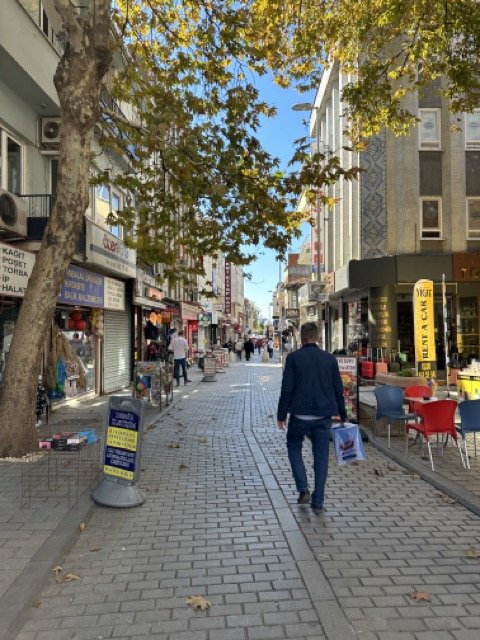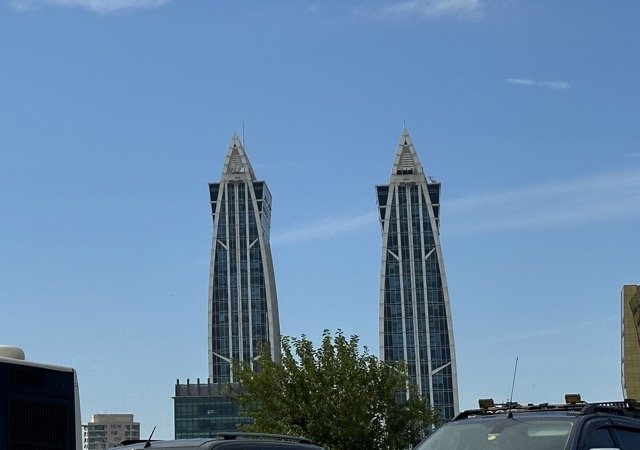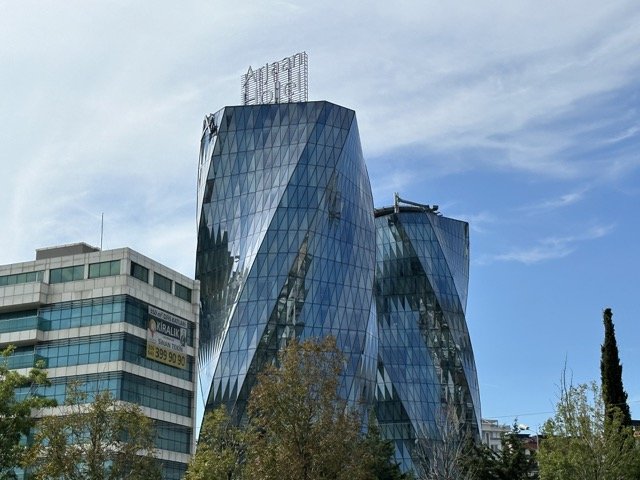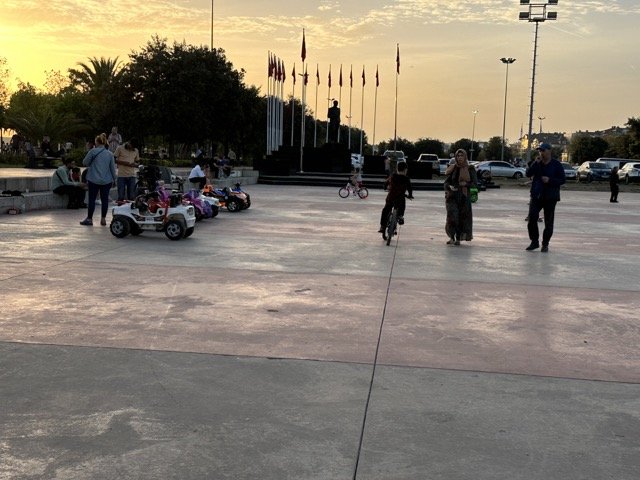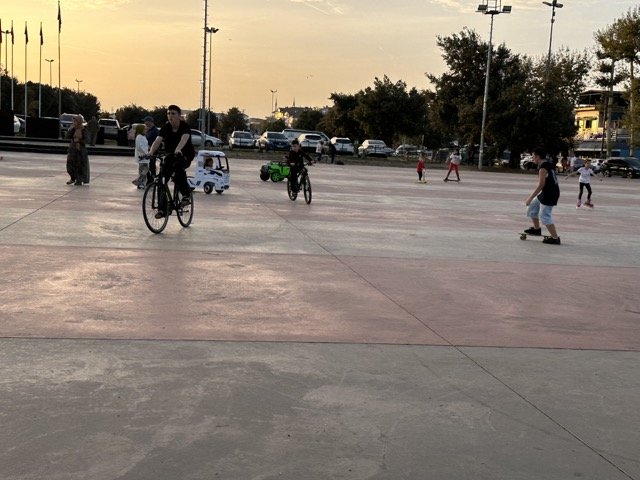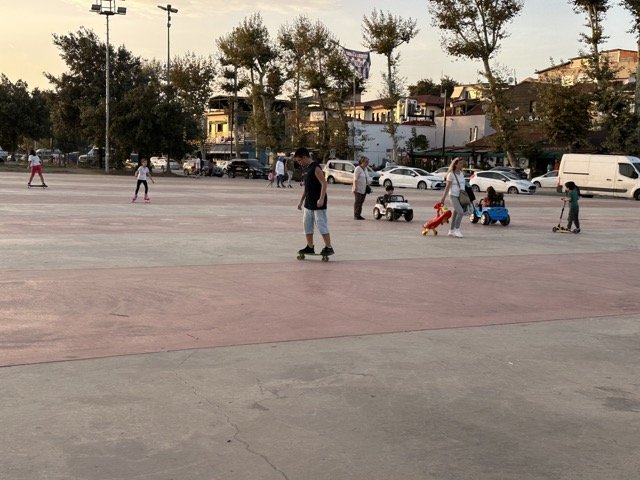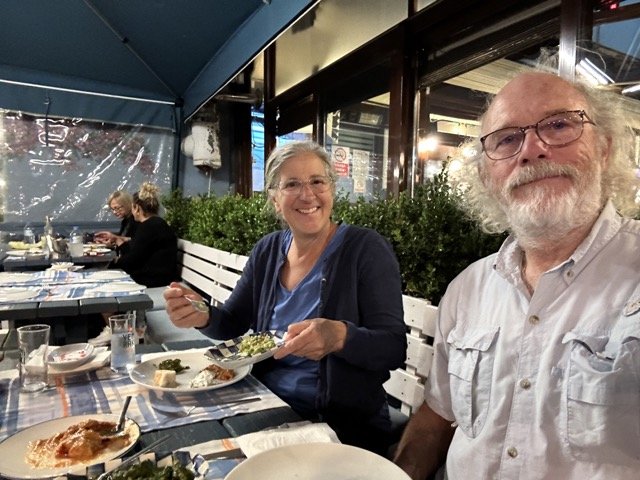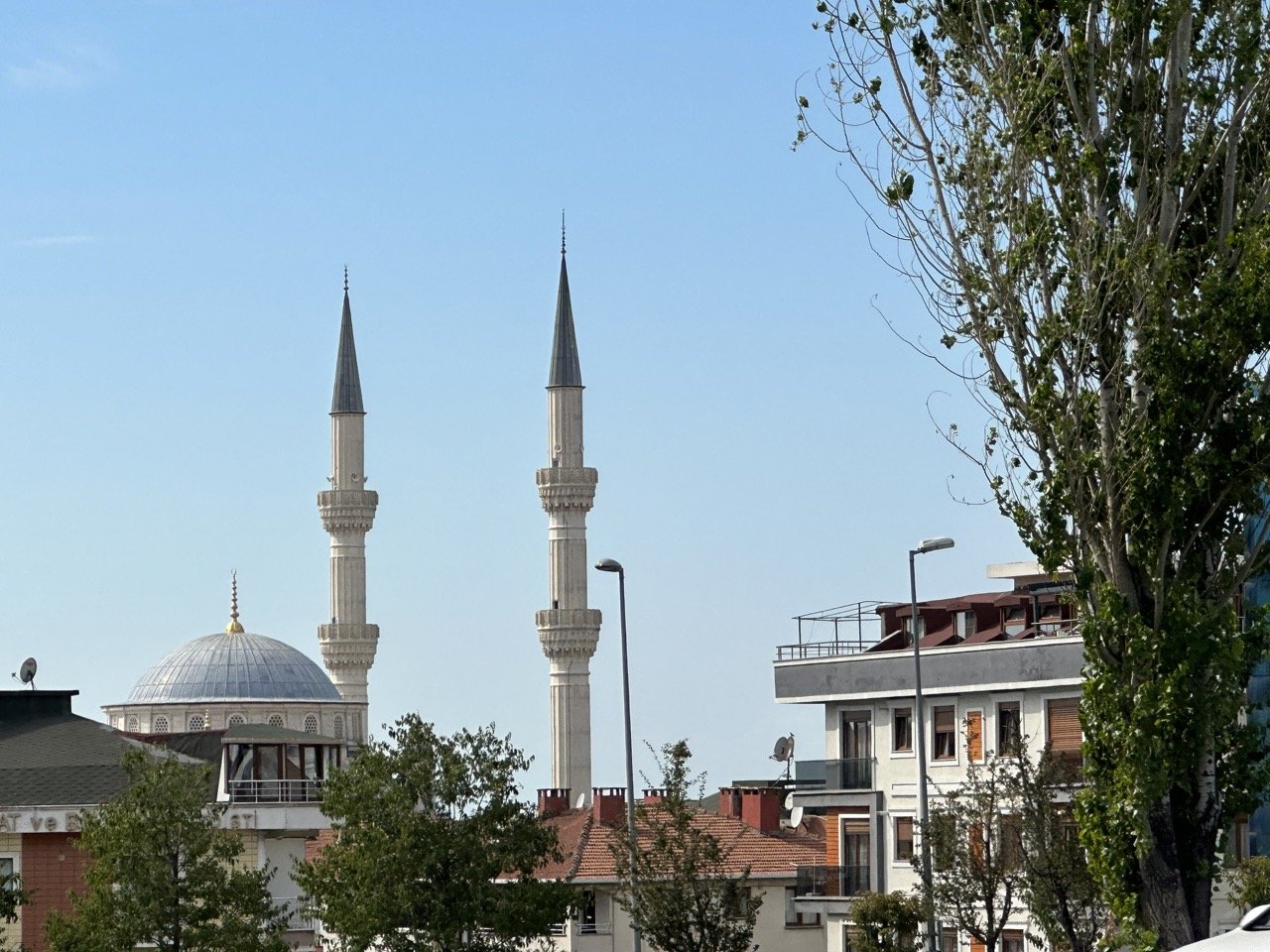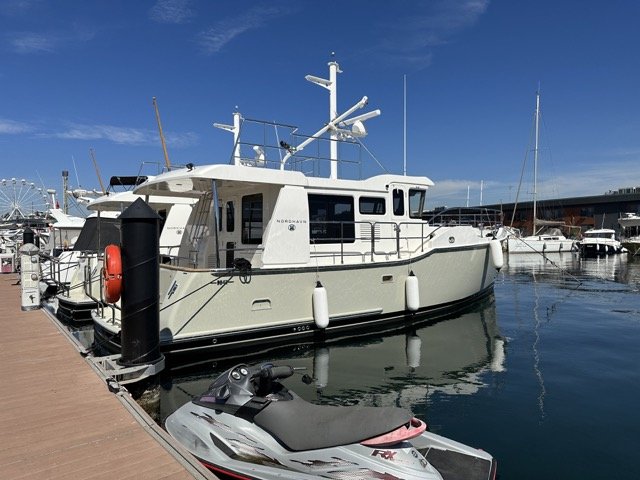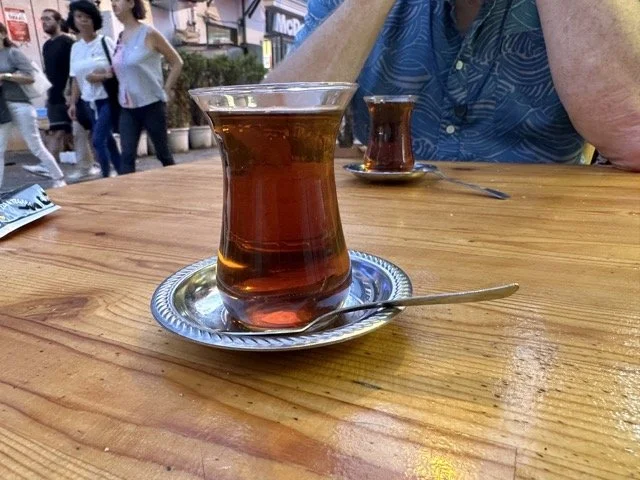We made it to Turkey.
We have been in Turkey for just over a week now. We are comfortably settled into a lovely 4th floor flat in Tuzla, just outside of Istanbul. After a few days of jetlag and feeling out of sorts we managed to rally and begin exploring. From our balcony we can see four small grocery stores, lots of other apartment buildings and just a hint of the sea. The neighborhood is bustling and traffic noises are loud, but the throng of activity on the street below is alluring. It’s just a short walk to the busy marina area where the pedestrian streets, devoid of cars except for the occasional scooter, are packed with small shops selling Turkish Delight, fresh produce, spices and teas, fish, meats and cheeses, loads of olives, electronics, hookahs and books. There are also lots of Turkish coffee shops and meze restaurants. A long shoreline park extends past the marina where small fishing boats float lazily on the Sea of Marmara. Everything here is unfamiliar and the taste and smell of the food is unidentifiable. Very few people speak English and google translate is our friend.
Smoked Salmon Arugula pizza - YUM!
Mezes are an appetizer in Middle Eastern cuisine. Something with fish, something with basil…..sheep cheese?
The US Foreign Service Institute ranked all the world languages based on difficulty. They then assigned a number for how long it takes an English speaker to master it. According to them, Turkish is a category IV language. This means that you need 44 weeks, or 1100 hours to reach some level of Turkish fluency. I’ve been studying about 30 minutes a day for a couple of weeks now. So far, I have probably learned a couple dozen Turkish words and phrases none of which have, in any way, helped me get around!
ATMs on every corner
That being said, last year when we visited Turkey for the first time, daily life was more of a struggle. Simply exchanging US dollars to Turkish Lira was damn near impossible. There are bank machines on every corner, sometimes a dozen in a row, but as we don’t read Turkish it was difficult to determine if there was even an option to choose another language. Also many of the machines will just spit out a foreign credit card without even reading it. This time around we somehow got lucky and managed to exchange our currency without much difficulty.
Cars definitely have the right-of-way over pedestrians.
Navigating Bauhaus
Public transportation makes getting around this city relatively easy once you’ve purchased a metro card (good on all buses, trains, ferries and trams) and electronically attached your vaccination record to it. We did take an Uber once last year to get to the Nordhavn factory. It was THE worst ride ever (unclear if our driver was intoxicated) and we actually got in a wreck on the freeway that day. Fortunately we were both fine, and we returned to our apartment after the factory tour via a reputable taxi company. Naturally we were pretty leery to try Uber again but, out of necessity, we did. Yesterday we took an Uber to Bauhaus, the Turkish equivalent of Lowes or Home Depot, and purchased most of the remainder of tools that Tom did not pack in the 350 pounds of luggage we arrived with. We also scoped out the store for all the other assorted things we’ll need once we get situated aboard Meraki. We’ve now taken Uber several times and found it to be safe, super convenient and incredibly affordable.
Two completed N41s in Viaport Marina ready to be shipped to their owners in Canada and Australia.
We visited the Nordhavn factory again a few days ago. I’m not going to lie, I left there feeling pretty devastated. They are still waiting for our davit (the rooftop crane that lowers the dinghy into the water) to arrive before our boat can be launched. Much of the equipment for these vessels is manufactured in Turkey, however the rest is sent as cargo by ship from all over the world. As the supply chain has delayed so much of the factory’s procurements, and because we are already here awaiting our new home, the factory owner has arranged to airfreight our davit to Turkey! They are doing everything humanly possible to speed up the final completion of our boat, and we couldn’t be happier with the time and attention we’ve been given, but I was fairly despondent when I found out that we could not move aboard our boat for another six weeks.
We signed the contract to purchase our boat at the end of 2020. We never imagined it would take two years to get it. It’s been a VERY LONG wait. And it is close - SO CLOSE!
If there’s one thing I’ve learned during the world shutdown, it’s that being flexible and resilient, having an elastic mindset and embracing the unknown is a necessity. We’ve all had practice now at triaging and responding to the wide array of immediate challenges and issues. For me, taking time to sit quietly and just feel all the feelings is invaluable. I’ve learned it's okay to allow myself to feel devastated, angry or alone if that’s whats happening. I’ve learned to embrace having a good hard cry. I think it allows me to move through the jumble of emotions more quickly, and to realize that it’s also okay to feel appreciation and joy. There is a lot of freedom in finding something delightful.
So after the whirlwind ceased spinning, I landed firmly in the ‘time to go exploring’ camp. This is the perfect opportunity to drive the coast and check out the marinas. To learn which ones have the services we may need and what the costs are for things like water, fuel and electricity. Is there an ATM machine? Where are the best fish markets, butchers, fruits and vegetables stands, and are they within walking distance of the harbor? My focus has now shifted to planning a road trip for the next couple of weeks and I am super excited to explore what lies ahead.
Most of the men here dress similar to the men in the US - shorts or jeans and T-shirts. Anything goes for women. Many women wear hijabs (even with shorts or overalls) while others wear full burkas. But you will also see short skirts and tank tops. It is not unusual to see a woman in a full burka arm in arm with a scantily clad friend.
